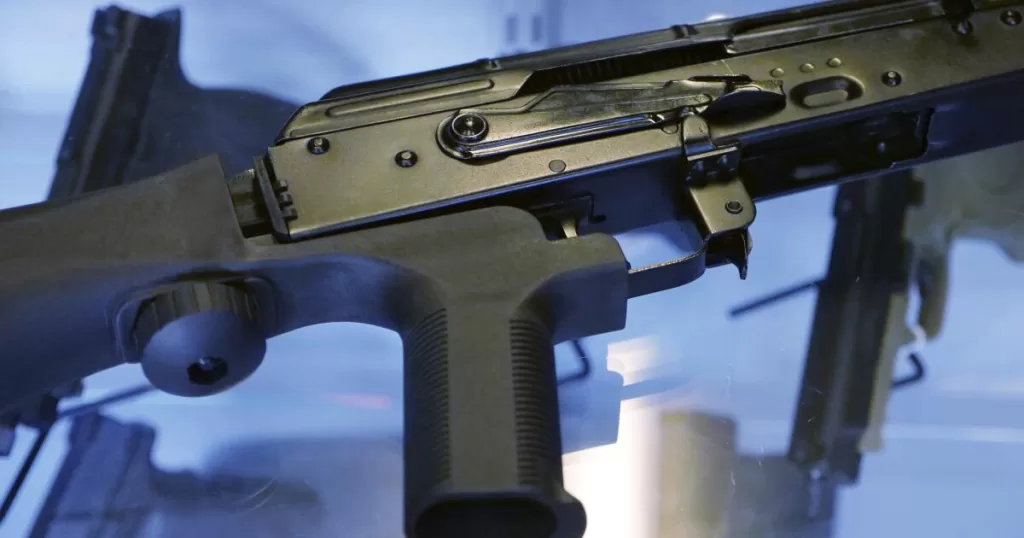In a 6-3 decision, the justices rejected the views of the Biden and Trump administrations and ruled that bump stocks could not be prohibited as illegal machine guns because the trigger action operates in a different way.
The court’s six conservatives were in the majority and the three liberals dissented.
While the ruling wipes out the federal regulation, bump stocks remain illegal under California law.
Justice Clarence Thomas, speaking for the court, said bump stocks do not meet the definition of a machine gun.
“A semiautomatic rifle equipped with a bump stock does not fire more than one shot by a single function of the trigger,” he wrote in Garland vs. Cargill. “All that a bump stock does is accelerate the rate of fire by causing these distinct [functions] of the trigger to occur in rapid succession.”
In dissent, Justice Sonia Sotomayor said a bump stock works like a machine gun.
“When I see a bird that walks like a duck, swims like a duck, and quacks like a duck, I call that bird a duck,” she wrote. “A bump-stock-equipped semiautomatic rifle fires automatically more than one shot, without manual reloading, by a single function of the trigger. Because I, like Congress, call that a machine gun.”
Justices Elena Kagan and Ketanji Brown Jackson agreed.
Gun safety advocates said Congress needs to take up the issue.
“Guns outfitted with bump stocks fire like machine guns, they kill like machine guns, and they should be banned like machine guns — but the Supreme Court just decided to put these deadly devices back on the market,” said John Feinblatt, president of Everytown for Gun Safety. “We urge Congress to right this wrong and pass bipartisan legislation banning bump stocks, which are accessories of war that have no place in our communities.”
After the Las Vegas shooting, then-President Trump ordered the federal regulators to reclassify bump stocks as illegal machine guns because they permit a shooter to fire hundreds of rounds per minute. The Biden administration attorneys defended that rule.
But the court’s conservatives said the action of a bump stock differs slightly from a machine gun and, therefore, cannot be prohibited without a further change in the law.
Congress first restricted machine guns in 1934 in response to the gangland murders during Prohibition, including the Valentine’s Day Massacre in Chicago. Since then, Congress has revised and updated the ban several times.
The case decided Friday did not involve the 2nd Amendment and gun rights. Instead, it turned on how machine guns were described when Congress prohibited their sale. They were defined as weapons which fired automatically with a single pull of the trigger.
The Las Vegas shooter had an arsenal of assault-style rifles in his hotel room overlooking the concert site. Authorities later said 14 weapons were fitted with bump stocks that had permitted the gunman to fire more than 1,000 rounds in 11 minutes.
More than 500,000 bump stocks were said to be in private hands when the Bureau of Alcohol, Tobacco and Firearms issued its ban in 2018. Owners were told they needed to turn in those weapons.
Michael Cargill, a Texas gun store owner, turned in his two bump stocks and then sued to challenge the law. He won before the conservative 5th Circuit Court in New Orleans which said the wording of the law was ambiguous.
U.S. Solicitor General Elizabeth Prelogar appealed and urged the justices to restore the ban.
